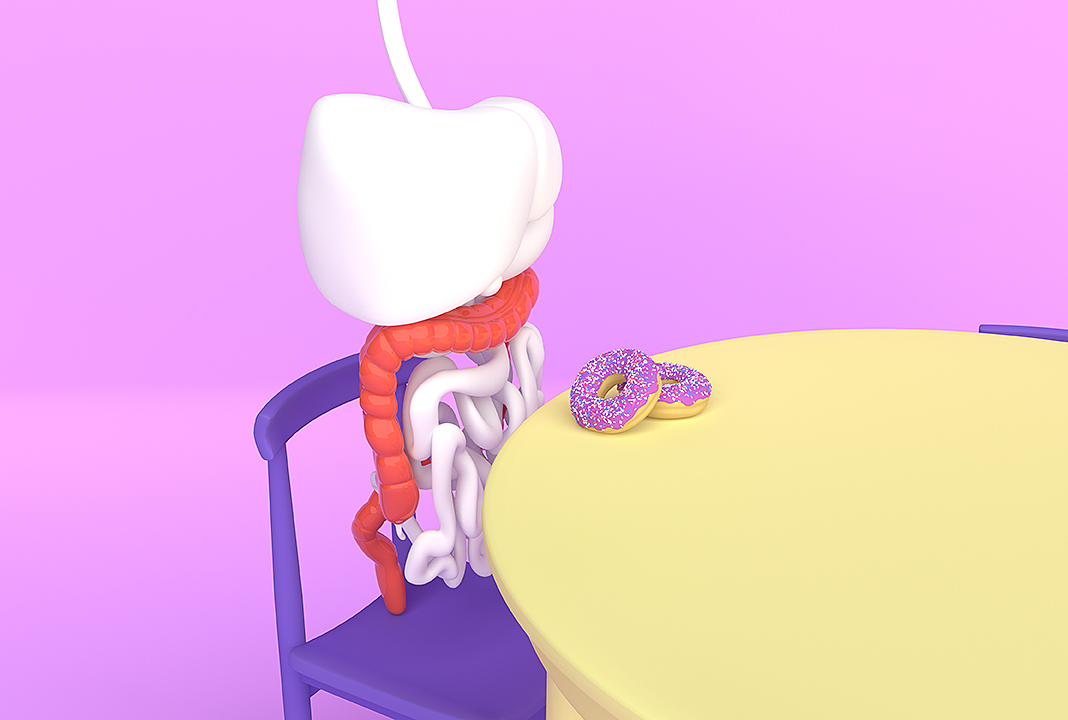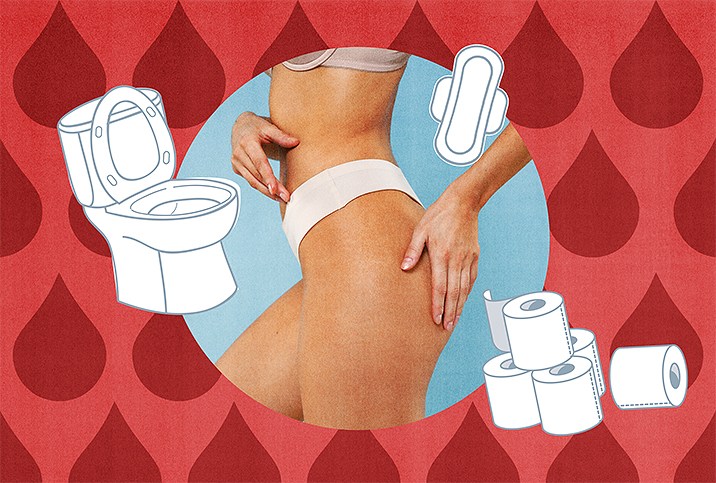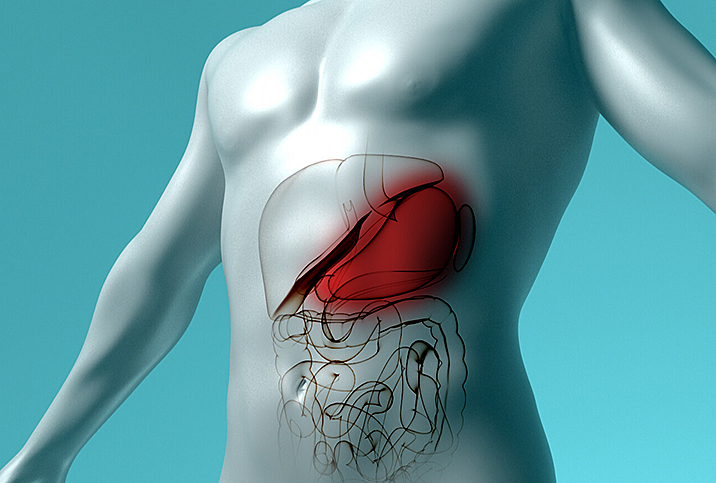Purple, Yellow, Red and Blue: What Your Poop Says About You

In my house, we were told it was impolite to talk about politics or religion at the dinner table. Notice that there were no hard rules about poop, but we all collectively never, ever talked about our feces.
It's a strange phenomenon for something so commonplace, it literally happens to everyone, to hold such a high spot on our list of taboo topics. Aside from sex, and maybe more so, going "number two" is the number-one subject most of us shy away from. Is it because we don't know what makes for good poop?
Start talking shit
Pooping is really nothing to be embarrassed about. Indeed, the more open we are about our bowel movements, the easier it becomes to discuss with others. But if this is a tough topic for you and you're shy, no worries, no one will know you're reading this.
One of the most common things inquiring minds (*cough* our editorial team *cough*) want to know is: Can you tell poop is healthy just by looking at it?
"You absolutely can, and if you're not sure where to start, consult the Bristol Stool Chart," said Lauren Kelly, a holistic nutrition expert who specializes in gut health. "Ideally, you want poops to be firm enough that they're easily excreted from your body in one piece. The appearance would be like a smooth sausage or slightly drier sausage with cracks on the surface. If bowel movements regularly reflect diarrhea (loose, mushy or watery) or constipation (excessively dense, pebble-like and/or hard to pass), that's an indication that something is wrong."
'Ideally, you want poops to be firm enough that they're easily excreted from your body in one piece.'
Keeping a regular eye on your poop can provide insight into possible problems and easy solutions.
"Sometimes, [your poop] can simply indicate that you need more fiber in your diet or an increase in water," Kelly explained. "If you're experiencing constipation, consume more water. Alternatively, if you have diarrhea, increase fiber intake by consuming more fruits, vegetables and legumes. For additional fiber intake, consider adding nuts and seeds to dishes, especially ground flaxseed."
"Of course, unfavorable bowel movements can also be a sign of another underlying issue," she added. "If problems persist or become a regular occurrence, seek out help."
The pros and cons of probiotics
Another hot turd topic is probiotics, and whether they actually help to promote healthy pooping. While some doctors have waived them away as nothing more than a placebo, Kelly said they can help digestive function.
"Probiotics contribute greatly to digestive function and overall gut health," Kelly said, "and therefore may impact the quality and frequency of poop. But let's be clear: Probiotics do not cause you to poop. They don't function like laxatives."
Probiotics are "good" bacterial strains that live in your gut. They carry out many roles that impact your whole health, including the breakdown and digestion of food. They balance and manage bad, opportunistic bacteria, as well as the synthesis of vitamins, hormones and neurotransmitters, all of which contribute to mental health and cognitive function.
Many factors can impact the delicate balance of good and bad bacteria—better known as the microflora—that live in the gut. Examples include alcohol, antibiotics and medications. Ingredients often found in processed, pre-packaged foods can be the root cause of many digestive issues. So, even if probiotics don't cause us to poop, they could be affecting how our bodies interact with food through the digestive process.
"A lot of the food that we eat, we actually don't have the capability of harvesting energy from it," said Purna C. Kashyap, M.B.B.S. in a 2013 interview with the Australian Broadcasting Corporation. Kashyap studies the complex interactions between gut bacteria and dietary carbohydrates, and their influence on host physiological function.
"A lot of that goes down to our colon where all these bacteria can then ferment that food and provide additional sources of energy," Kashyap continued. "So if the bacteria are more efficient in harvesting energy from the food that we eat, then one can imagine that you would be getting more energy from the food that you eat."
What goes in…
Doctors used to tell us you're supposed to have at least one bowel movement each day.
"You actually want to be pooping between one and three times per day," Kelley said. "Even better, bowel movements should occur around the same time every day."
Of course the big question is: how important is a good diet to having healthy fecal matter?
"It's everything," Kelley said. "Food is information, and just like if you put the wrong type of gas in your car and it destroys the engine then ceases to work, our bodies are the same. If we feed our bodies unhealthy food and, in the process, become deficient in the amino acids, vitamins, minerals, fiber and nutrients it needs to carry out its daily functions, our bodies won't be able to keep us safe."
'Food is information, and just like if you put the wrong type of gas in your car and it destroys the engine then ceases to work, our bodies are the same.'
"The body is a miraculous thing," Kelley added. "But only when it's being supported can it operate at top-notch."
It's crucial to stay on top of nutrition and vitamin intake, not just for poop improvement, but for overall well-being. And just because you don't want to talk about it, that doesn't mean you need to get misinformation from unreliable sources. As a general rule, you may want to pay as much attention to what comes out of your body as the food and drink you decide to consume.
A good first step—especially if you suspect your poop is not quite as it should be—is to keep a journal of your bowel movements and the food you're consuming. This might give you a clue to any dietary or lifestyle changes that might help, and will certainly be a foundational document to begin a conversation with a medical professional.


















